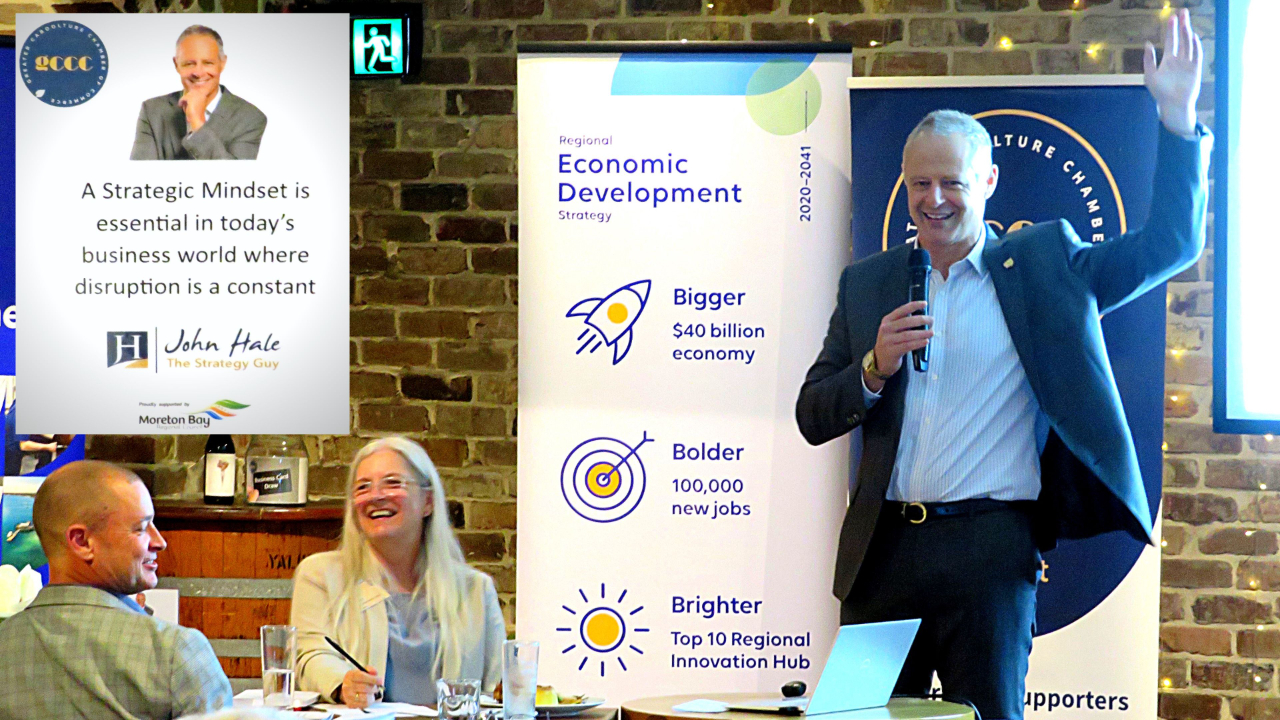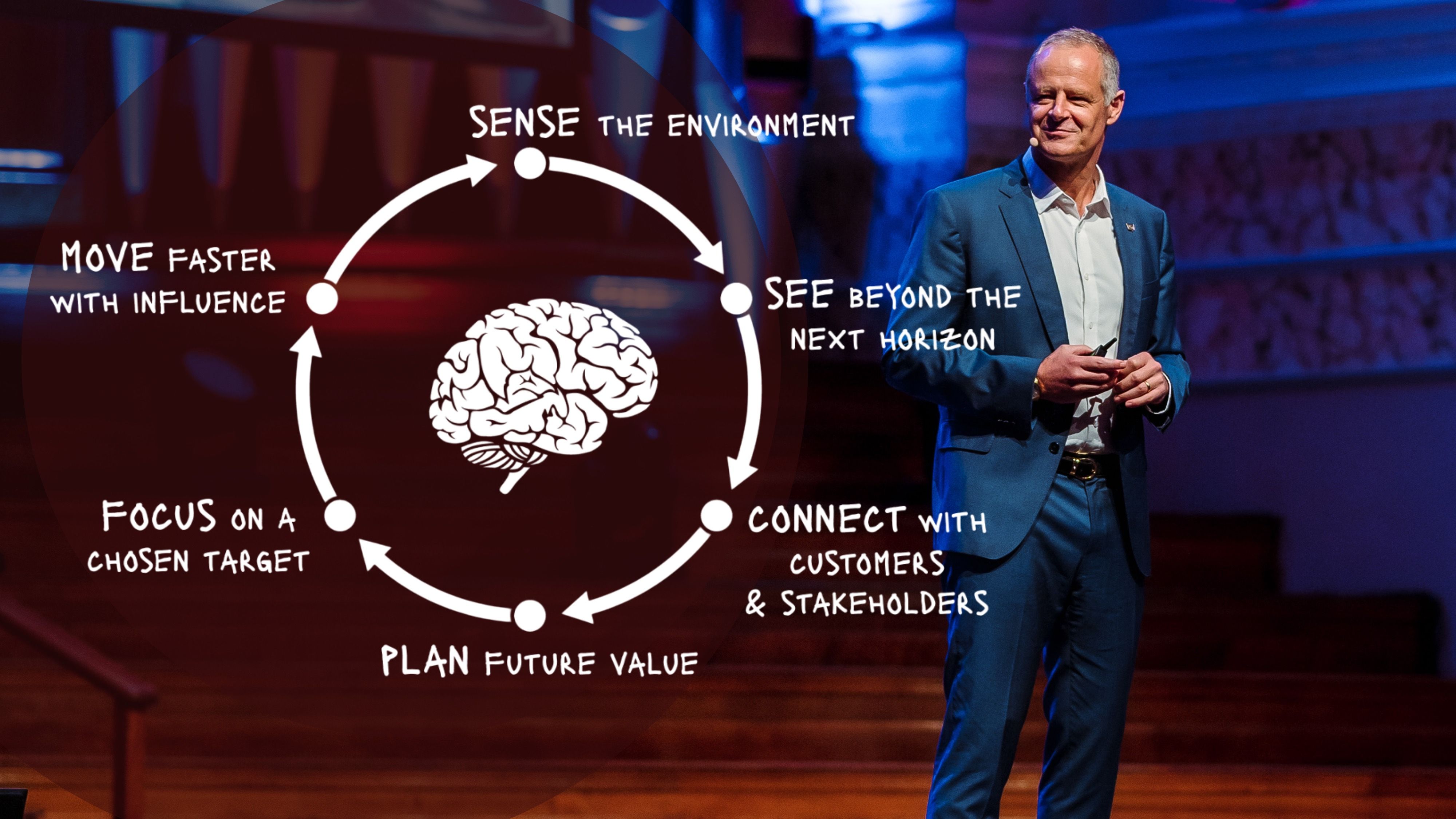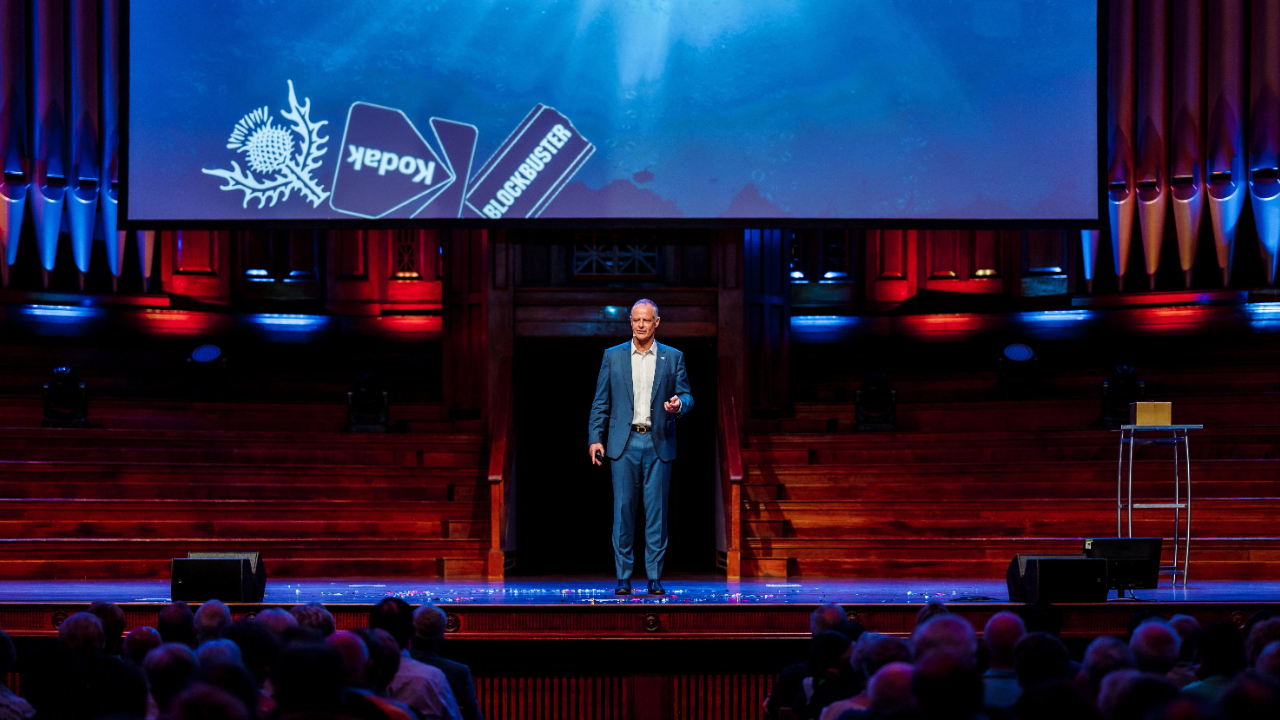Ideas, strategies and tactics
The Strategy Guy's Blog
SHAPING OTHERS

When leaders approach me after a speaking engagement, their eyes brimming with excitement, I am filled with a profound sense of connection.
As a passionate motivational speaker and author, there is no greater satisfaction than witnessing the enthusiasm and engagement of leaders who have just heard me speak at a conference. I love to surprise and delight my audiences while unpacking the steps needed to create a strategic mindset, build future perspectives and shape a brighter future.
After many of my talks, there is often an opportunity to connect with individual audience members, to learn about their trials and successes. I cherish hearing their inspiring journeys. Through their victories, I am reminded of the limitless potential within each of us.
It is in these moments that selling copies of my books and signing them with a personalised note of encouragement becomes much more than a mere transaction; it becomes a heartfelt exchange and a catalyst for change. We shape each other. ...
UP NORTH

I am excited to be speaking up north in Townsville.
Michael Kern and his team at the Townsville Chamber are hosting a unique business lunch and have kindly invited me to speak.
My talk will focus on the practical steps needed to develop a strategic mindset, including gaining a broader perspective on the future and how a strategic mindset can be used to promote mental resilience and greater health.
All of us are facing unprecedented challenges and opportunities in 2023. To meet these changes, I will be sharing, stories, knowledge, and tools to help business leaders become more effective and strategic.
We will learn to recognise cognitive biases, anticipate future trends, build strong relationships with stakeholders and achieve better results.
#johnhalespeaker
#thestrategyguy
#thestrategybook
IDEA SPREADING

When I arrived to speak to Morton Bay business leaders at the Sandstone Point Hotel on Friday, every table had a sign placed by my host, the Caboolture Chamber.
The sign read: "A Strategic Mindset is essential in today's business world where disruption is constant."
The idea of a strategic mindset is an idea worth spreading.
It was an honour to speak to the Caboolture Chamber. They certainly know how to organize a fun event and create a fantastic learning environment – so much laughter and learning over the hour.
Even though the Caboolture Chamber is still relatively new in the Chamber of Commerce realm, they are already filled with enthusiastic and dedicated community leaders, such as Morton Bay Councillor Adam Hain, Paul Garcia, Chamber Relationship Manager from Business Chamber Queensland, and Yvonne Rinaldi, Principal of Caboolture Montessori School, as well as dozens of business owners and managers, like Marissa Austin, Operations Manager from ETC Ltd. I was truly impressed by...
BUSINESS LUNCH

I am excited to be part of Moreton Bay's celebration of Small Business Month.
Naomi Spence and her team at the Greater Caboolture Chamber of Commerce are hosting a unique business lunch and have kindly invited me to speak.
My talk will focus on the practical steps needed to develop a strategic mindset, including gaining a broader perspective on the future. All attendees will receive a complimentary copy of my best-selling book, The Strategy Book.
All of us are facing unprecedented challenges and opportunities in 2023. To meet these changes, I will share knowledge and tools to help you become more effective and strategic leaders. You'll learn to recognise cognitive biases, anticipate future trends, build strong relationships with stakeholders and achieve better results.
This business lunch is Friday 19 May at The Cellar in the Sandstone Point Hotel.
Last tickets on sale today and tomorrow.
https://lnkd.in/g58Dy4vV
The event is being generously supported by Moreton Bay Regional Council.
#thestra...
GO WEST

Throughout history, heading in that direction has always led to great opportunities. And in just one week, I'll be heading to Perth's Crown for this year's Advantage Conference - I'm pumped!
But wait, it gets better. I'll be sharing the stage with some seriously cool people: the high-energy, quick-witted Andrew Gill, communication master Bruce Cotterill, and adventure extraordinaire James Castrission, who holds not one, but TWO Guinness World Records.
Andrew will be the MC, keeping us all entertained and engaged, while Bruce shares his tips for effective communication and building meaningful relationships. And James? He'll be sharing his insane stories of adventure to inspire us all.
As for me, I'll be sharing practical skills and reliable action steps for leaders to navigate the ever-changing world of disruption, build future perspectives, and allocate resources like a boss. See www.halecg.com/keynote
I'm ready for an incredible conference and the chance to learn from these awesome indivi...
STRATEGIC MINDSET

A strategic mindset is essential in today's business world where disruption is a constant.
Emerging technologies, evolving consumer preferences, and changing regulatory environments can all disrupt established business models and entire industries.
Having a strategic mindset includes understanding the forces shaping your industry and the trends likely to affect your organisation in the coming years. With a strategic mindset, leaders can anticipate challenges and opportunities and make decisions that position their firm for success.
Effective resource utilisation is also crucial. Leaders must focus on activities and initiatives that drive growth and profitability while letting go of those that no longer serve the organisation's goals. Disciplined resource allocation and avoiding chasing every shiny new opportunity can create a sustainable path to success.
Cultivating a strategic mindset among leaders can lead to benefits such as anticipating change, identifying the best growth oppor...
STRATEGIC SPEEDS

Running a company is not always a sprint, often it's like running a marathon. In preparing for a successful marathon, I've learned to mix up my training. Sometimes I need to train longer distances. This morning I ran a 21 km piece in preparation for my upcoming Marathon in June.
Other times I need to do sprint training on the track.
The same goes for being an efficient and effective CEO.
My friend Rowan, a retired CEO and veteran of the telco industry, shares the three primary functions that guided him as a CEO for twenty years: gaining employee buy-in, having a clear vision, and ensuring alignment between all parts of the business. This is typically a slow process and takes time. Here slow and steady wins the race.
Yet for a new CEO, it's important to very quickly cultivate self-awareness and embrace your shadow. Ego management and self-care are critical. You must be fast here. Expanding your awareness helps you prepare for and adapt in the face of volatility, uncertainty, complexity, and...
STAGE STRATEGY

As a speaker sharing the stage can be a great strategy.
What better way to engage an audience of over 600 at City Hall than to invite a brave audience member to join you on stage?
Thanks to learned Rotary Volunteer Tim Boyd for taking to the stage and assisting me with my Strategic Mindset Motivational Keynote over the weekend.
As a speaker, I never stop learning, and Tim’s knowledge of the evolution of hominids was a treat. We learnt that the evolution from Homo erectus to Neanderthals and Homo sapiens represents a central aspect of human history.
Understanding this evolution provides insight into how humans have adapted and how we have come to dominate the planet.
Full talk here: Centenary Conference Rotary District 9620 Brisbane Town Hall
THE STRATEGY BOOK

Looking back at history, we can see examples of businesses that failed to create options and make smart bets, leading to their downfall. Do you remember Encyclopaedia Britannica, Kodak and Blockbuster?
Encyclopaedia Britannica, Kodak and Blockbuster failed to adapt to changing market conditions and were eventually overtaken by competitors who did.
In the past, movie rentals required customers to physically visit a store and then rewind the tape before returning it. The rise of digital streaming services like Netflix has made this process obsolete, rendering traditional movie rental stores like Blockbuster irrelevant.
Similarly, the advent of digital photography rendered Kodak's film-based business model obsolete.
And although Encyclopaedia Britannica was the only way to accidentally learn about the mating habits of sloths, it failed to embrace the internet successfully.
In the constantly evolving landscape of the business world, leaders need to develop a strategic mindset and c...
WORKSHOP STRATEGY
This month I had a smooth speaking trip to Rocky (Rockhampton). I am grateful to Phil Henry, Robyn Lock, Tanya Paul, Jason Foss and Greg Bowden FIML ARI from Capricornia Chamber of Commerce and Advance Rockhampton for your wonderful support in getting me there!
Rocky delivered a great audience of motivated business leaders. Working with them was a real treat. Instead of my usual 20 min motivational keynote, I ran a 90 min interactive workshop to help everyone with their business strategy.
The Chamber shared:
"Excellent session with John Hale - The Strategy Guy - last night at Customs House. It was the ideal opportunity to step back and look at your business's direction."
Chamber President Phil Henry wrote:
"John Hale, the Strategy Guy, demonstrated his expertise and adaptability at the Capricornia Chamber of Commerce's first members' meeting of 2023. John transformed his keynote presentation into an impactful 90-minute workshop focused on his six-step framework for developing a ...


